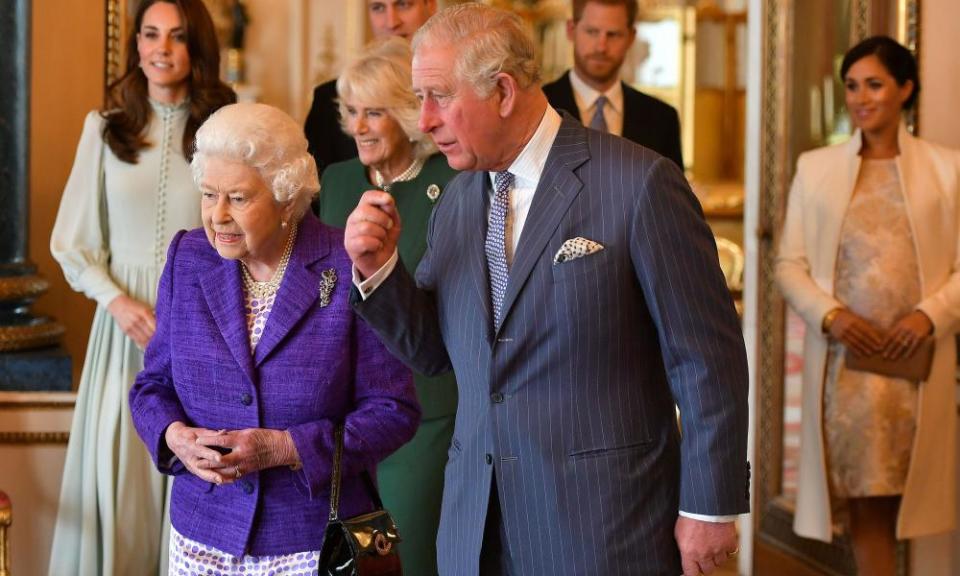Philip’s death leaves Prince Charles as patriarch of royal family

An indisputable truth of hereditary monarchy is that promotion to the “top job” is accompanied by deep personal loss. So it will be for the Prince of Wales, who will eventually take the throne as he mourns his mother.
But the death of his father will have had no less profound an effect on Prince Charles. And, though on any official level it does not alter his royal status, it does change the family dynamic.
The Duke of Edinburgh’s death, as the Queen expressed, has left “a huge void”. Philip was the patriarchal head of “the firm”. This is the mantle Charles will now assume. This role was most symbolically underscored when Charles was the only family member to visit his father during his recent spell in hospital.
Related: BBC’s Prince Philip coverage breaks UK TV complaints record
He spent 30 minutes at the duke’s bedside at King Edward VII’s hospital in London in February. What words were exchanged between father and son can only be guessed at, and are unlikely to ever be made public. But it was a sombre Charles who emerged with, according to photographers waiting outside, tears glistening in his eyes.
When the Queen attends the funeral of her husband of 73 years, then marks her 95th birthday four days later without him, Charles will be increasingly at her side.
“As his mother, he will be very mindful of her finding herself in a very different position now her partner is not there,” said one aide. “It’s more about those quiet moments, in anybody’s life, which would previously have been filled by your partner. And he will be thinking, how can I help in those spaces, for my mother, not for my head of state.”
Any changes in the professional roles of Charles, or Prince William, would be “organic” and probably almost imperceptible, said the aide. When Philip retired from public life in 2017, his responsibilities, his military and other patronages were redistributed.
The Queen manages her diary alone, with the help of a revolving door of royals when required. Charles and William now perform all overseas engagements. If necessary she consults, for example in the handling of the crisis over the Duke of York’s friendship with the financier and sex offender Jeffrey Epstein, when she consulted both Charles and William.
Philip chose to spend his retirement at Wood Farm on the Sandringham estate in Norfolk, until the Covid pandemic led to him shielding with the Queen at Windsor Castle. She had got used to him not being a constant at her side – though she visited him in Norfolk regularly, and they were said to have spoken daily on the phone.
Charles assumes the role of patriarch at a time when the royal family appears as divided as it has ever been. He will undoubtedly be anxious that Philip’s death offers an opportunity to heal rifts, especially between his sons, Harry and William.
Though Charles’s vision is of a “slimmed-down” monarchy, the royal historian Robert Lacey said Philip’s death “is just a reminder, that without him and Harry” they needed extra people.
Charles’s siblings may take some time to adjust to his new role. “It will be difficult for them to see him the way they used to see their father,” said Joe Little, the managing editor of Majesty magazine. “In my opinion, though, Charles has been pretty much the head of ‘the firm’ for quite some time. With the general decline in the Duke of Edinburgh’s health, it was a natural progression.”
“And Charles is fully consulted in all manner of things he never used to be,” added Little. “In many ways, Charles has already become his father.’

 Yahoo Movies
Yahoo Movies 